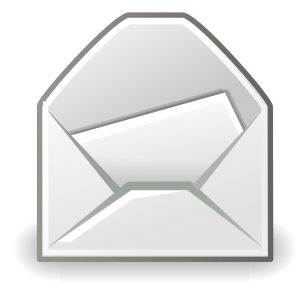Congratulations, you’ve landed an interview! Well done on getting this far. Landing an interview is a confidence-booster for any job applicant. It says that you have the right credentials to complete the tasks outlined in the job description. Now for the final hurdle: convincing the interviewer/interview panel that you will be pleasant to work with, have some initiative and passion, and will fit in comfortably with the team that already exists. Many recruitment bloggers will try to give a top five or top ten list of the best tips for conducting a successful interview. However, some of the points that crop up all the time are usually common sense. For example, it’s not appropriate to turn up looking dishevelled with jeans and an old, ripped t-shirt on. So many articles around the web talk too much about personal appearance; it regularly makes the top five interview tips list. I, however, like to give job applicants some credit; they know that going to an interview usually involves wearing a suit, or at least some sort of dressy-casual outfit. It’s up to the interviewee to root through their wardrobe and find something that looks clean, tidy and professional. I assume applicants possess this initiative and so, it will take up no more space here.
This article differs from others in that it only gives one tip. This one tip overrides all the others; it is by far the most important thing to take on board when you are preparing to be interviewed. Here it is:
Know your stuff.
Yes, that’s it, simple really. When you get the call or email telling you that your application has been successful and the employer would like to invite you to interview, the first thing that should be on your mind is how to find out more about the company. It is imperative that you give the impression that it is this particular company you are dying to work for, even if it was one application of twenty. Therefore, the tips below will give you further insight into how to conduct thorough research about a company. It involves much more than just googling them and reading the ‘About’ page on their website, as you will see.
1. Prepare for the ‘what’s your weakness’ question.
This question is one of the most popular interview questions out there, but most people make the mistake of assuming it to be a measure of humility. There is a spectrum of ineffective ‘what’s your weakness’ answers that range from the ridiculously egotistical ‘I’m too much of a perfectionist’ to the self-deprecating ‘I’m not very good at a b or c’. The main issue with this question is that many interviewees don’t actually know the real purpose of it. It’s not to see if you’re arrogant or humble; it’s to test your self-awareness. The most important part of this answer is not the weakness itself, but how you have worked on how to address and improve it. For example, if you say your main weakness is ‘I’m very disorganised’ the interviewer doesn’t give much weight to the personality trait. They are instead hoping you will develop your answer and tell them how you have dealt with your poor organisation skills. You would do well to tell them how you have coped with being disorganised by telling them how you write to-do-lists and compose schedules on your smartphone. This would show them that you have worked to improve one of your weaker qualities.
2. Be ridiculously thorough when finding out about the company.
There are many ways to do this. Most interviewees who are in tune with the idea of finding out about a company before an interview only read the website. However, if you would really like to stand out and show them that you are a fan of them per se, it is recommended that you go the extra mile when conducting research, A really savvy way to do this is to make use of a tracking program such as Google alerts. All you have to do is type in the name of whatever it is you want updates on and the program does the rest. This allows you to keep tabs on a company and be alerted on your phone without ever even having to do a Google search. This kind of research is useful for an interview coming up in a few weeks as it allows you to see the short-term progress of a company’s online presence and gives much more specific advice than a generic website.
3. Use statistics to your advantage.
Finally, there are websites devoted to industry research. These sites provide annual reports about significant statistics specific to numerous companies. Take advantage of sites such as these in order to find some positive statistics on the company you’re being interviewed for. Citing how you were impressed with the performance of the company at relevant times during the interview itself will sound much more convincing if you have one or two statistics to back up what you’re saying.
Overall, research and preparation which uses the above tips will ultimately be more fruitful and confidence-building when you walk into the interview. One last point: again, this is common sense but it has happened before. Just make sure that if you find out anything negative about the company while researching that you don’t mention it. The last thing you want to do is have the audacity to tell your potential employer how you would’ve done things differently in a particular scenario. This kind of arrogance will cost you the job. I’m sure this is blindingly obvious, but it just has to be said. Anyway, until next month’s blog. Good luck, and I sincerely wish you all the best in your upcoming interview.
by Gillian Rixey
(Gillian is a PhD qualified freelance writer and scholar born in Ireland but currently residing in the United States.)
















